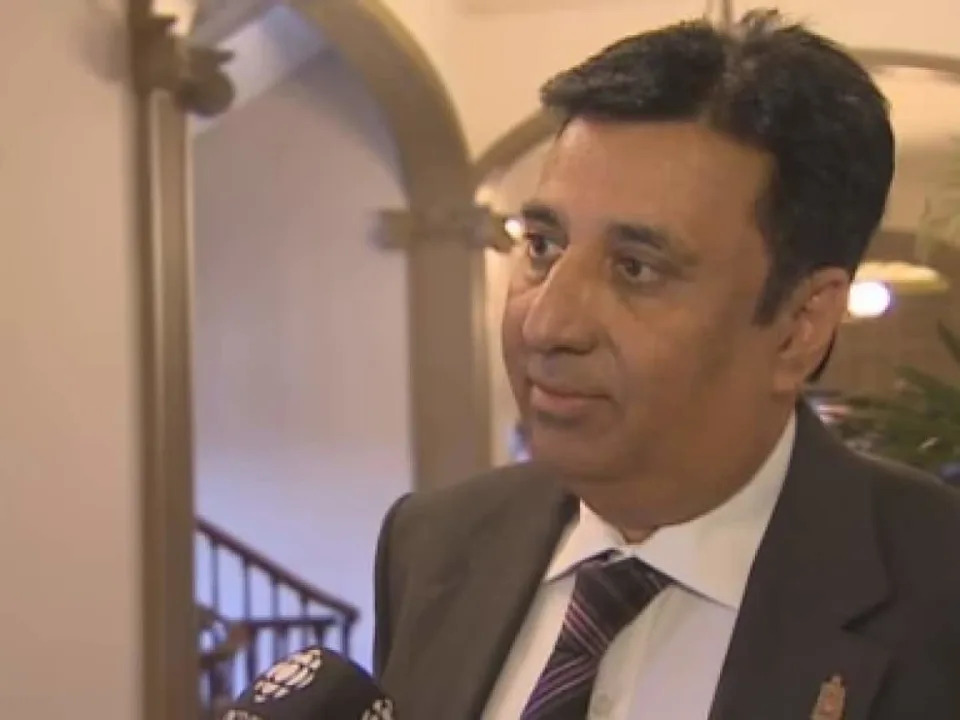END FOR PROFIT CARE HOMES
Lawsuits claim thousands in unpaid bills connected to N.B. special care homes operator
Fri, March 3, 2023

Two companies allege Amarjeet Singh Jatana owe them more than a combined $15,000 for unpaid goods and services provided to Villa Neguac and Foyer St-Bernard. (Radio-Canada - image credit)
Legal troubles are mounting for the man who had his licences revoked for two special-care homes he operated in northeastern New Brunswick.
Two companies have filed small claims lawsuits against Amarjeet Singh Jatana for services and goods provided to Villa Neguac and Foyer St-Bernard, which they allege were never paid.
The lawsuits by G.M Comeau Plumbing Ltd. and Miramichi Meat Ltd. amount to $15,621.51, according to documents obtained from the Miramichi Court of King's Bench.
They're the latest to be filed against Jatana, who's already facing lawsuits claiming he owes more than $790,000 in connection to other business ventures he's been involved with in New Brunswick and Prince Edward Island.

Radio-Canada
Marc Comeau of G.M. Comeau Plumbing is seeking $8,007.68 in unpaid services at Foyer St-Bernard, including interest on three invoiced amounts from February, July and August of last year.
Comeau said he was unable to comment on the lawsuit Friday.
CBC News wasn't able to contact Jatana for comment Friday, and calls made to Foyer St-Bernard went immediately to voicemail.
Miramichi Meat filed two lawsuits, each targeting Villa Neguac and Foyer St-Bernard, with Jatana also named in both of them.
In the suit naming Villa Neguac and Jatana, Miramichi Meat claims it's owed $4,206.36 for the non-payment of groceries purchased for the home.
In the other suit naming Foyer St-Bernard and Jatana, the company claims it's owed $3,407.47.
In both lawsuits, Miramichi Meat wrote that the defendant was given notice they had until January 31, 2023 to make payments, but that they never replied in order to make arrangements to do so.
No one from Miramichi Meat was available to speak to CBC News when contacted Friday.

Michèle Brideau/Radio-Canada
The lawsuits follow allegations by staff at the two homes that bills for food, electricity and waste collection went unpaid in the months leading up to the Department of Social Development revoking the licences at the two homes.
On Jan. 17, the department announced the operating licences for the two homes had been revoked to protect the well-being of 29 residents after an investigation found they weren't in compliance with established standards and practices.
The department has repeatedly declined to say which standards and practices weren't being complied with due to "confidentiality rules."
New owner says he's unaffected by lawsuits
The forced closure of the two homes prompted a scramble by residents and their families to find new homes before a Feb. 17 deadline.
In early February, Marc-André Vienneau, a nurse from the Acadian Peninsula, said he'd undertaken the process of purchasing Villa Neguac, and the provincial government later announced it had granted a temporary operating licence for the home.

Michèle Brideau/Radio-Canada
Contacted Friday, Vienneau said the transaction has gone smoothly, adding that he's unaffected by any lawsuits targeting Jatana or the company formerly representing the home he now owns.
"I bought the asset, not the company, so I'm not involved in any of this," said Vienneau, adding that he's established positive relationships with suppliers who had dealt with the previous owner.
In an email to CBC News on Feb. 16, a spokesperson for the Department of Social Development said no residents were living at Foyer St-Bernard and deferred any comment about the home's future to Jatana.










